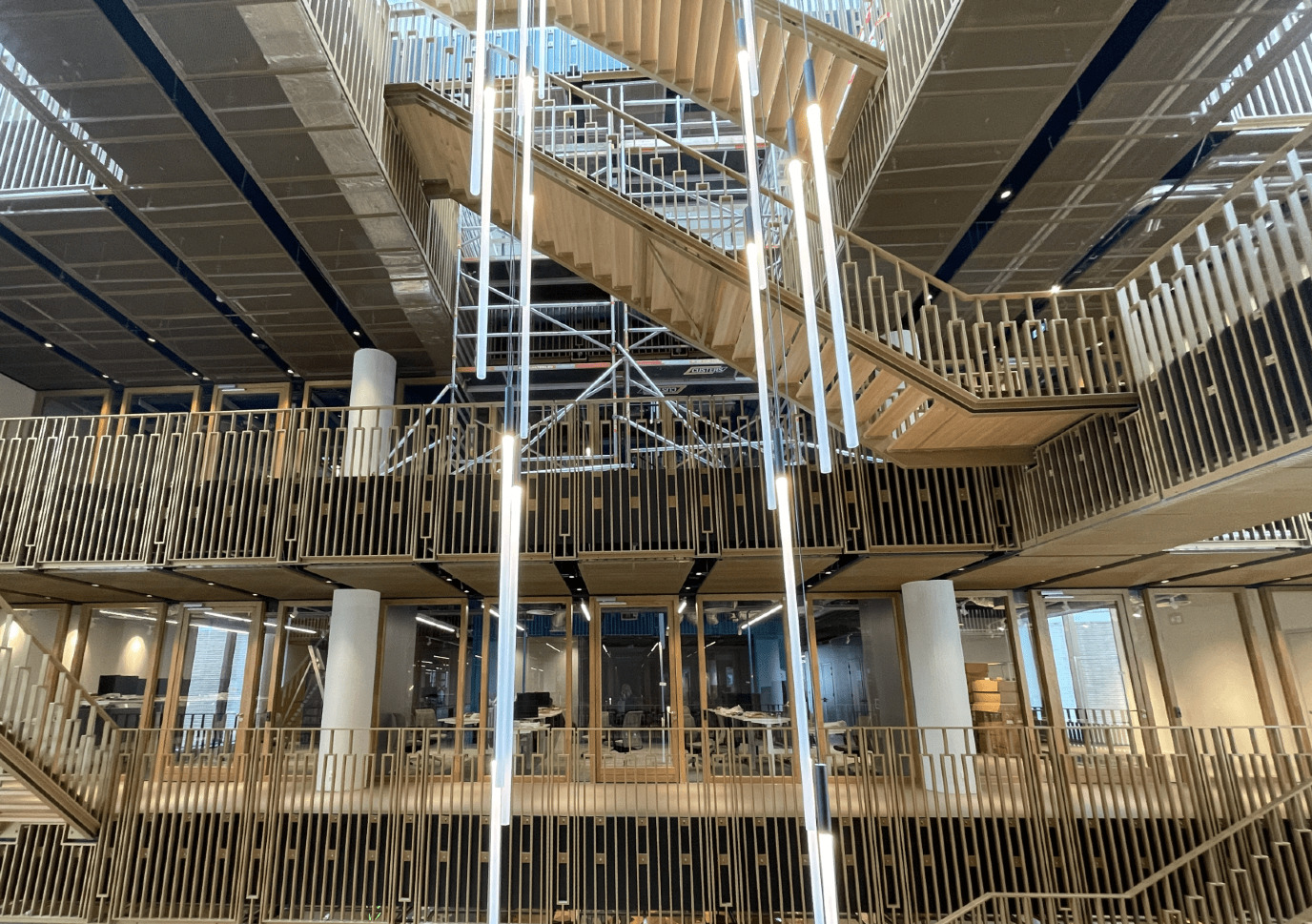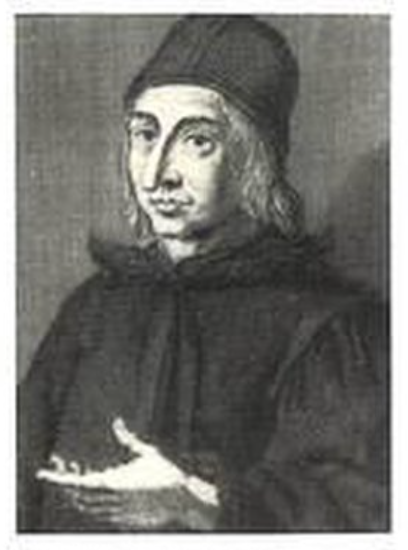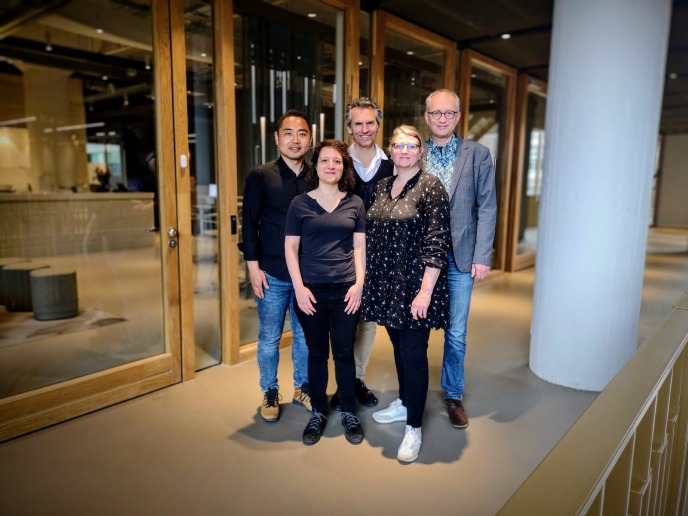Home@House of Connections: de Rudolf Agricola School for Sustainable Development

Four Schools for Science & Society and the University of the North (UvhN) will operate from the House of Connections—part of the Groot Handelshuis—at the Grote Markt. Who will they collaborate with, what will they tackle first, and how will the House Of Connections support them to achieve their goals? This time: The Rudolf Agricola School for Sustainable Development .
With whom will you collaborate within and outside your School?
With science and society in many ways. The Agricola School is formed by 100+ academics from widely different fields of science that collaborate in research groups. We cooperate with organizations and businesses that are committed to promoting sustainability, such as government organizations, municipalities, provinces, and NGOs. We enter into strategic alliances and cooperation agreements with a selection of key civil society organizations to further our scientific research including nature management and conservation organizations. The Agricola School has a fellow system, a scientific council, and four major themes, in which a great number and variety of sustainability research groups are active: Democracy and Governance; Development, Security, and Justice; Risk, Crises, and Resilience; Sustainable Landscapes and Regions.
What will you start with first now that you have moved to the House of Connections?
Closer team cooperation. Now that our School has moved to the House of Connections, our team of staff members is able to work closely together on the support of interdisciplinary research and teaching in sustainability. We are working hard to expand our organization, set out the broad lines of our development, and create a new teaching plan. The House of Connections is an ideal place to organize the many meetings with scholars and stakeholders. We are planning our first events in the event space of the House of Connections and are preparing for the festive official opening of our new building. In the meantime, we are getting to know our colleagues from the other schools better. We can now pick up joint activities more effectively, inspire each other, and enjoy our new open-plan office and its excellent facilities.
How do you think the House of Connections will help to reach your goals?

By stimulating a dialogue and providing a collaboration space. The House of Connections provides a creative and inspiring environment for networking and collaboration, which can facilitate the Agricola School's goals of bringing expertise for sustainable development together more effectively. The House of Connections provides opportunities for the school to engage with new partners and stakeholders. It offers a central place for our School to host events and workshops that promote sustainability. The event floor will help us to become a fixed place for knowledge and sustainability in the city and beyond.
What are you looking forward to the most?
Growing an inspiring community. At the School of Sustainable Development, we are looking forward to the opportunities for collaboration and interdisciplinary research that the House of Connections will provide. We are also excited to be a part of a community of organizations that share the School´s commitment to science. We are looking forward to the progress and applicability of the science we expect to further and the results we will be able to produce. But above all, we are excited about working on a sustainable future and enjoying the moment.
Can you give a few specific examples of projects the Agricola School is currently working on?
Under the four themes of the Agricola School, multiple research groups are engaged in a wide range of topics. Some examples include research on "Democratic Innovations," "Populism and Extremism," "Trade Sanctions," "Earthquakes in Groningen," and "Children and Young People in Disaster." Currently, there are about twenty groups, and we expect to expand to forty in the near future.
Scientists affiliated with the Agricola School are conducting various projects. For instance, they are studying the ecological impact of solar parks. What are the effects of solar parks on the environment? How can we construct them in an eco-friendly manner? Biologists aim to answer these and other related questions within five years. This research is made possible through a collaboration involving Solarfields (a solar park construction company), the Groningen Provincial Executive, and the Rudolf Agricola School.
Another example: thanks to a unique partnership with the Ubbo Emmius Fund, we have appointed a PhD researcher to investigate Landscape Securities - Innovative financial instruments for sustainable landscapes. The research aims to explore effective financing methods for nature conservation by experimenting with low-cost landscape securities. Combining expertise in sustainable finance, ecosystem services, and landscape valuation, the project collaborates with stakeholders to co-produce knowledge. Supported by the Northern Netherlands National Parks, NWB Bank, and others, place-based experiments utilizing the greenmapper software are driving impactful conservation efforts.

| Last modified: | 23 July 2024 3.03 p.m. |
More news
-
24 March 2025
UG 28th in World's Most International Universities 2025 rankings
The University of Groningen has been ranked 28th in the World's Most International Universities 2025 by Times Higher Education. With this, the UG leaves behind institutions such as MIT and Harvard. The 28th place marks an increase of five places: in...
-
05 March 2025
Women in Science
The UG celebrates International Women’s Day with a special photo series: Women in Science.
-
16 December 2024
Jouke de Vries: ‘The University will have to be flexible’
2024 was a festive year for the University of Groningen. In this podcast, Jouke de Vries, the chair of the Executive Board, looks back.
